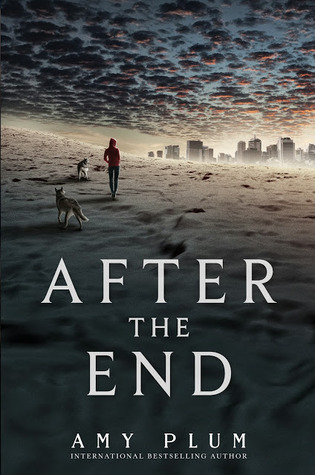
Book talk: When World War III ravaged the world a small group managed to survive in the remote Alaskan wilderness. Juneau is one of the children of these survivors and has learned how to live off the land and tap into the heart of nature to work magic. When her tribe is taken while she's out hunting she ventures out of the safe zone for the first time and what she discovers shakes her to the very core: a whole city, completely untouched. Is everything she was ever told a lie? But her tribe is still missing and she must find them. Now she has to survive in an environment she is completely unprepared for in a world where she has no idea whom to trust.
Rave: This story is told in the alternating perspectives of Juneau and Miles. Plum does a great job making Miles unlikable at first. She contrasts the serious problems Juneau is dealing with to Miles's melodramatic reaction to having to work in a mail room after being caught cheating on a test. When Juneau first meets him she sizes him up with the quip "a fortunate life, unfortunately for the rest of the world." At first Miles just plays along with her so he can earn points with his dad for turning her in but as anyone who's ever watched a high school rom-com will be able to predict he soon starts to fall for her. Despite being a bit cheesy it's nice to watch him gain empathy for Juneau and start to grow as a person and expand his world view (although it would be nice if he could have had empathy for someone without having to fall for them first.) The pacing is quick and fans of Katniss will enjoy the capable Juneau. An added supernatural element as Juneau works her nature-based magic will draw additional fans as will Juneau's pets including dogs and a wild bird.
Rant: At one point Miles says "Suddenly, and randomly, I have this flashback to history class, when we learned about how afraid the Native Americans were when they saw the European explorers’ rifles for the first time, calling them magical ‘fire sticks.’" Juneau's group also refers to shoes as 'moccasins' but has no stated connection to any native peoples. I found it odd and problematic to have these brought up without any commentary or other mention of native peoples.
Juneau uses homeless individuals as a conduit for her magic and I have torn feelings about it. On the one hand it's clear that Juneau treats them with kindness, values their help, and is saddened by the way society treats them. On the other hand the author always depicts them as insane, alcoholic, or both: “A hat sits in front of him with coins inside, and empty metal cans with BEER printed on them are scattered around him. I approach. His odor is pungent. Rancid.”
One final warning that the book ends on a complete cliff hanger. Plum easily could have ended the book a chapter or so earlier and left on a good note while still leaving curiosity over the sequel. Instead she chose to go on so that it would end on the most dramatic scene possible.
Every book its reader: I'd recommend this to fans of supernatural and survival stories.
Extras:
Amy Plum has plenty of extras on her site including a guide to post apocalyptic fashion and interviews with herself and her characters.
Source: ebook from public library
After the End by Amy Plum: buy it or check it out today!
No comments:
Post a Comment